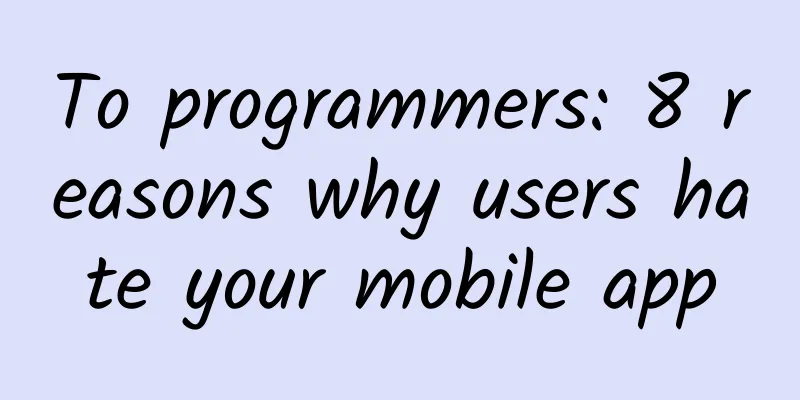How to Become a Great JavaScript Programmer

|
When I was a teenager, my interests spanned unrelated fields. I loved math as much as I loved history. My goal was to be like the great Renaissance men—excelling in many fields. It was a tall order—and suddenly I found myself in danger of becoming a jack of all trades and master of none. I started thinking about delving into certain areas so that I could at least become a "master of certain areas". So how can I focus on a certain area while learning the vast amount of knowledge required for software development? This post is mainly an overview of the techniques and resources I use to become a good JavaScript developer based on my 5 years of work experience. Most web developers today face a common problem: they have to stay ahead of others in multiple different areas - from databases to back-end architecture, to front-end user interfaces, to fixing the user interfaces with good CSS knowledge. Read books First and foremost, you have to put in the effort to excel. While you can also accumulate bits and pieces unintentionally, such as reading a few blog posts from time to time, and honestly, this method is easier because the initial investment of time and energy is much lower. This learning mode will obviously take more time than your dedicated and deliberate learning process. The solution to this dilemma is also simple: read books. Books are the ladder of human progress. Words are the tool we use to pass on knowledge from generation to generation in a condensed form. One of the problems to be solved in becoming a web technology expert is that you must learn when to stay away from the network itself. The network itself has confusing and distracting content, so the first advice I would give is to read books on related topics. For JavaScript, here are some books to start with: JavaScript the Good Parts is like the Bible of JavaScript. It's a little old, but it's still the best place to start. JavaScript: the Definitive Guide is a must, although you might think of it as a reference. Secrets of the JavaScript Ninja by John Resig, the creator of jQuery, is also worth a look. You can also read e-books, which is very convenient, and many online e-books are free. In addition, JavaScript Guide is not a book, but it is trusted and favored by Mozilla developers. Learning, using and reading script libraries The next most important step is to learn about script libraries. Books teach you how to read a language, and libraries teach you how to use it. There are two important things you need to do with script libraries: use them, and read their source code. For library usage, there are a few key libraries you need to know: jQuery, Backbone, underscore, and one of React, Angular, and Ember. This is not to say that you have to use these libraries, but any decent JavaScript developer should at least have some experience using these libraries (whether good or bad). The second most important thing to improve your JavaScript skills is to read the source code of these libraries. I highly recommend reading the source code of Backbone and underscore because they are very beautifully written. Reading and understanding underscore can improve your functional programming skills. Another library worth reading the source code and recommended to me by other developers is mootols (I personally do not use mootools and have not read its source code.) The remaining libraries, such as React and Ember, can be difficult to understand, but are well worth it. You should also browse the source code of other libraries to see how they structure their codebase and try to discover some new patterns. Other well-known libraries that you can use and read their source code include D3, highcharts, and moment.js. Exercises and self-questions The key step to becoming a good JavaScript developer is practice. Lots of practice. Ideally, the practice should focus less on the DOM and more on the language, so make sure you have a test harness that can run node.js. Do a lot of trivial node.js exercises. Study coding techniques and go through different ways of using JavaScript: closures, prototypes, extending arrays (map, filter), etc. As you practice, start to form the basic ideas of JavaScript in your mind. A friend of mine, Armagan, is an excellent JavaScript programmer and a teacher who uses Pro JavaScript Design Patterns in his lectures, so it's worth reading this book. While learning, try to answer questions such as: How does prototype inheritance work? What is the definition of closure? How do keyword meanings change? How do I use apply/bind/map/filter/call? Gather a list of common source points that JavaScript developers face and try to explain them in your own words. Explaining these concepts to another person in written or verbal form will greatly improve your skills. While practicing, try to think about "what if that's the case?" scenarios. For example, "If I use bind twice, what does this "this" mean? How does jQuery ensure that the this keyword points to the jQuery object, not the global object? How does this library accomplish certain functions?" These are common questions you should always ask yourself. Learning Standards The next thing to learn is the EcmaScript standard. Read the latest copy of the EcmaScript standard. Also, try to learn about upcoming features in JavaScript, such as ES6 and ES7. New features such as promises, modules, generators, comprehensions, etc. have appeared recently, and it may be helpful to read the standard carefully, and also read professional books such as "Understanding EcmaScript 6" by Nicholas Zakas or "Exploring JS" by Dr. Axel Rauschmayer. Learning the standard from the main source and exploring the new additions to the language is the way and method to the professional path. Utilize online resources I mentioned earlier that using the web to learn about the web is dangerous, but now I'm going to propose that we can also use the web to get the best resources. Hacker News is a good source, but continuous tracking usually takes more time because the proportion of truly useful information is very low. Instead, it is better to aim directly for weekly digests such as JavaScript weekly. Over time, you will naturally realize which libraries or technologies are becoming more and more attractive. You can look for influential JavaScript developers on Twitter. Other online resources include blogs such as Toptal Blogs, Rebecca Murphey's blog, and Nicholas Zakas' blog. Another very important online resource is video conferences and educational videos. When it comes to conferences, the JSConf series is of very high quality. As for educational videos, I highly recommend Pluralsight because they have a team of developers who have experience in writing high-quality courses. in short
in conclusion Repeating the above steps and participating in a large number of projects will help you improve your JavaScript skills quickly. But always remember that only hard work will pay off and you will have the hope of becoming a professional. I consider myself a good JavaScript programmer, but I still have a long way to go to become a professional, and I need to continue to learn and master knowledge and technology. Finally, I wish you happy learning and hope we can encourage each other! Original English text: How to Become a Great JavaScript Developer |
<<: Project Soli is a more amazing interactive technology than Apple Watch
>>: White UI design is not the only minimalist design
Recommend
Event Operations | How to trigger an event with 30,000 people in 3 days with a budget of more than 3,000 yuan?
It's not a problem if the idea is old, it'...
Product Operations | The only difference between you and a product manager is experience and a business card!
The internal war between operations and products ...
WOT2016 Wang Qingyou: Listen to the Chief Architect Discussing Large APP Server Architecture
The WOT2016 Mobile Internet Technology Summit wil...
The most popular street stall business in the rural areas along the coast that is not afraid of overstocking
In the rural areas along the coast, due to the ge...
Old School Seo: Baidu Domination Course "Search Engine Promotion System Can Be Replicated to Build a Precise Passive Traffic System" with Tools
Old-school Seo: Baidu screen domination and traffi...
Pinduoduo Operations: What tricks does Pinduoduo use to get things for free through bargaining?
The bargaining and free-getting activities that h...
Analysis of the Unicorn NetEase Cloud Music’s Competitive Products with Over 300 Million Users!
Before NetEase Cloud Music launched its first ver...
The new version of App Store may have a severe blow to the ranking business, but there is still hope
On September 20, Apple officially pushed the iOS ...
How to create a viral effect to increase conversion rate?
When people are exposed to an explosive amount of...
3000 words to explain the key points of private domain operation
As competition among domestic content platforms e...
Jing Xiang-Business behind-the-scenes operation underlying architecture + 17-node strategic architecture + human nature operation
Course Catalog ├──17-node strategic structure | ├...
[Case Study] SEO tips for startup companies! Complete brand keyword search optimization within 30 days!
In the era of mobile Internet , everyone is talki...
Building high-performance enterprise product architecture with Laravel
Using Laravel to build high-performance enterpris...
WeChat 8.0 status update: 28 new statuses added, including "split" and "with baby"
Have you updated WeChat 8.0? Upon investigation, ...
Yidian Zixun's editor explains: Three must-haves and three traps for content operations
Times will cause media to change, but users’ dema...







![How to make 20,000 yuan a month on a photo site, teach you step by step how to run a website to make money [video course]](/upload/images/67cc29e2b501b.webp)

